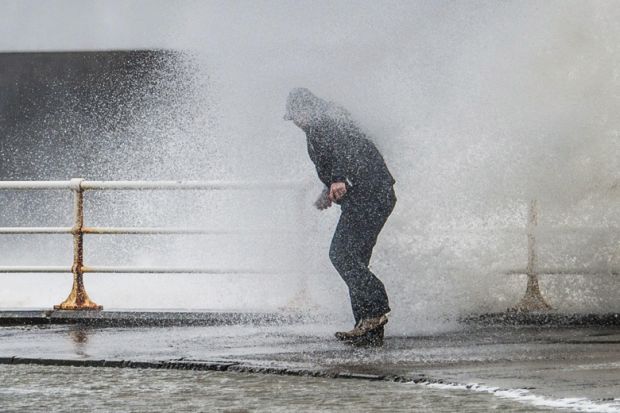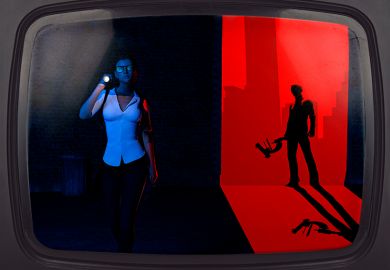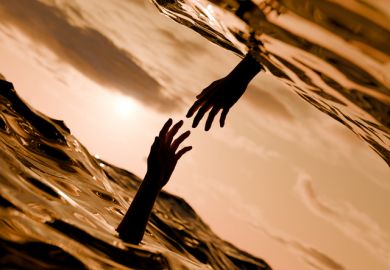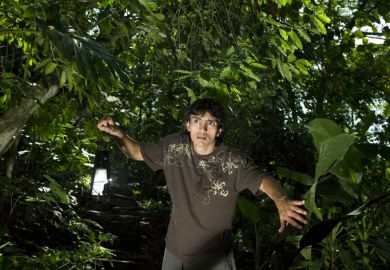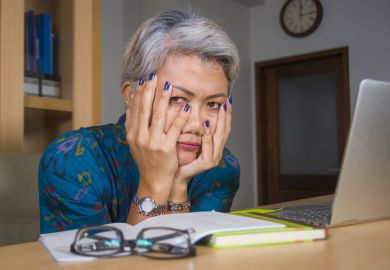In February, I was somewhat unwell but feeling good about how things were going. I had just completed the manuscript of my fourth monograph and was relishing the thought of turning to the fifth. My open access publishing platform, the Open Library of Humanities, was enlisting institutions from around the world and I was due to speak at a range of fantastic events. My institution, Birkbeck, University of London, had just confirmed that, from October, I will officially be a professor – before my 30th birthday. Yes, I had a very bad cough, but how terrible could that be when all else seemed so right in my world?
It turns out that a cough can be very terrible indeed. In my case, it caused me to have a stroke, leading to a prolonged hospitalisation and a quest to begin thinking far more thoroughly about what I value in people, institutions and the academic world in general.
Although the aetiology is hard to pin down, my doctors think that they have got to the bottom of what happened to me in early March. I have been a long-standing sufferer of rheumatoid arthritis, a painful autoimmune condition that attacks the joints and organs. In my case, it also causes vasculitis: an attack on the blood vessels. As a result, my vessels have been substantially weakened, even while my regular treatment suppresses the immune-system components that have some responsibility to repair them. The final piece in the grim puzzle was to contract a moderately resistant bacterial infection that took over a month to disappear. The coughing that ensued dissected both of my carotid arteries (which supply the head and neck with oxygenated blood), leading at first to a 14-day hemiplegic migraine that sent me to hospital.
While I was in hospital, the ophthalmologists discovered that I also have a rare eye complaint called retinoschisis. I remember quite distinctly sitting in the ophthalmology clinic, where a group of junior doctors were all lining up with great enthusiasm to observe it. It sticks in my mind because, at that moment, the kind doctor who had been entrusted with my care knocked on the door and told me, very calmly in a European accent that I never could quite place, that I had definitely had a stroke.
I was then sent for various urgent scans because they suspected that the vasculitis may have been the cause. After telling my long-suffering wife what had happened, I found myself alone in the ward – or, at least, as alone I could be in a ward of four, with the ghastly green anti-bacterial curtain pulled around my bay.
I felt nervous and unsure. Of course, it seemed totally ridiculous and unfair for all this to have happened to me, especially at such a young age. But, more broadly, I was worried about the future. I was still potentially having strokes at this point. The vascular surgeons who had visited me at 2.30am told me precisely how risky it would be to operate (while insinuating that they might nonetheless have to do so), entailing that I would just have to ride it out for now. But I was also thinking about the plans that my wife and I had made, the friends we had and just what the recovery was going to look like. “Stroke”, to me, was something that meant disability and change. A stroke was something that other, older people had, and from which they emerged modified, somehow incapacitated. I did not think I knew any academics who had had strokes and continued to work. And I knew that cerebral vasculitis would have to be treated with a variety of nasty chemotherapy drugs (of variable efficacy) that are usually used for cancer treatment.
Having just signed my new contract on the day before I took myself to accident and emergency via my GP, I knew full well that “incapacity” was a reason for removal from post (within the bounds of employment law, of course) at my institution. And so it naturally sprang to my mind that the identity and livelihood that I had laboured so hard to build, in the institutions that I loved, might now collapse before my very eyes. Even if I didn’t die – which I thought at one point could be a serious possibility – other questions popped unbidden into my head. What if I couldn’t think when I was discharged? What if I couldn’t write? What if I couldn’t travel or speak? More broadly, as I wrote on my blog to update well-wishers, I reflected on how tightly I tie my own worth to being able to think, move and exist in a way that can be thrown out the window in a few minutes. How would my friends and colleagues react to me if I was not the “same person” as I was before I had my stroke? What did it mean to have a potential problem with your brain but to still be an academic?
Core to these issues is, of course, the acknowledgement that I am not just an academic: I am a person with a body that can fail, and who is more than the sum of every academic output, grant and project to which I have committed. Yet there is a strong, natural tendency in the academy to worship intelligence. Indeed, here – and without using his work as any kind of self-help philosophy – we might draw on the commencement address given in 2005 by the American novelist and academic David Foster Wallace at Kenyon College in Ohio. Wallace noted that if you “worship your intellect, being seen as smart, you will end up feeling stupid, a fraud, always on the verge of being found out”: the impostor syndrome with which many of us can feel overly familiar. Indeed, this passage has always drummed home to me that if you worship your intellect, you are likely at some point to have it taken away from you. Whether you are cut down in your prime or survive to an old age, few of us are fortunate enough to keep our mental acuity to the very end.
But it turns out that this is not the unavoidable fate of victims of strokes or sufferers from vascular-inflammatory diseases. Thanks to a stream of kind messages from friends and well-wishers, I have learned of many who have returned to academic life. And this is, in part, why this piece was worth writing for me. For many, admitting to illness comes with stigma and shame. Some people simply don’t want to be out there as a public voice defined by their illness. I was lucky. I have networks around me that came forward in confidence and offered helping hands and listening ears for me to talk about how I felt and what I was going through. Birkbeck could not have been more supportive. But not everyone is so fortunate.
I also want to acknowledge that stories of illness and disability are about people, not processes. Some may feel differently from me about their own unique conditions and see any “learning” from their conditions as offensive. And it is certainly true that people with disabilities are not there to teach the able moral lessons; we do not suffer or differ so that others can learn from our experiences and become better people. So I write only about the specifics of my own thoughts. But I do feel that this episode has changed my outlook on life. And I know that reading the positive stories of others cheered me at a frightening point as I sat on ward Eleven West.
In the end, since I enjoy my work and life, it is very good news for me that the doctors expect me to make a full recovery. But the shadow of what may have been looms large, and I will remember those dark days. If I had incurred severe loss of function, either mental or physical, leaving me unable to do my job, which of my friends and colleagues would still see me? I feel sure that many of them would have continued to be my friends, for they are kind people. Yet the circumstances that brought us together were very different to that shadow world that I glimpsed, and it is hard to say what would stand the test of time.
Either way, I will redouble my own efforts to be kind. And I will make every effort to see beyond the work to the people inside and outside the academy whom I am proud to call my friends.
Martin Paul Eve is professor of literature, technology and publishing at Birkbeck, University of London.
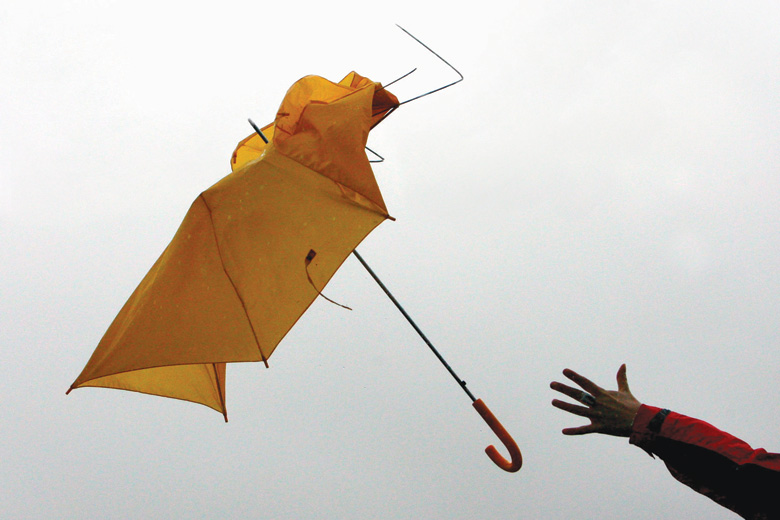
Being an academic who travels frequently, I had got used to some minor ongoing stomach complications. Last summer, however, I began to develop some annoying symptoms that were initially diagnosed as post-infectious irritable bowel syndrome. But by February, a routine colonoscopy revealed that I had a malignant tumour in the colorectal area. Further radiology testing showed that some of the cancer cells had spread to the liver. In the jargon, I was diagnosed with stage 4 cancer. There is no stage 5 – or, rather, there is, but it is more like the Lands of Always Winter.
A cancer diagnosis is a deadly serious thing. All I can say is that no amount of mental strength can adequately prepare you for dealing with such a blow. Your new condition as a cancer patient appears so unreal to you – particularly as much of the flood of new medical information that accompanies it is contradictory. Yet, like it or not, it is an indelible part of your own personal chronology. Although I am still relatively young – I just turned 50 – I am now a cancer patient for the rest of my life.
It is surely impossible to be diagnosed with cancer and not to think about your own mortality. Mine finally dawned on me as I was walking down Gellért Hill in Budapest, nearly a month after my initial diagnosis. It is staggering how a small part of your body (in my case, a four-centimetre tumour) can wreak such havoc on your health. However, as an academic, you are also likely to think about your mortality in academic terms: what is your intellectual legacy and how much of it will endure? You ask yourself if the articles you are preparing for the next research excellence framework will be your last contribution. Every scholar may aspire to write one final magnum opus: the culmination of their career – if, ultimately, an act of vanity. That may or may not happen in my case.
One of the hardest challenges a cancer patient faces is how to inform others about their condition. It is not one of those topics that one can easily introduce into a conversation over coffee. Initially, I told a few close friends and family, particularly those who had some medical knowledge or experience with cancer. I really had to think very hard about how to inform my 16-year-old son. I was also advised – rather blandly – by human resources to inform my dean and head of department, which I did. However, my instinct was to confine the news to as few people as possible; I just wanted to get on with my work.
However, once I started chemotherapy treatment, it quickly dawned on me that some of the side-effects, such as hair loss, would be too noticeable to hide over time. So, during the Easter break, I decided to make a general announcement by email. I am so glad I did. There is no way to express in words the warmth and concern expressed by my colleagues, some of whom I hardly knew. I have been flooded with offers of practical help, such as cooking for me, accompanying me to my medical appointments or watching my son. The other day, one of our PhD students baked me a delicious banana bread to make me feel better. There have been all kinds of such acts of kindness that will be hard to ever forget.
I am pretty sure that my experience of cancer will not make me a better person. There is no nobility in illness. But I do have one plea. The news of the severity of my condition was communicated to me in an offhand and patronising way that made me lose sleep for several days. This caused me to reflect long and hard about how universities deal with students in vulnerable conditions. I am sure that many students must have had similar episodes of personal disarray on account not so much of bad or confusing news in itself as of the way it was conveyed to them. Perhaps it would be a good idea for academics and administrators to consider how to better communicate information that can affect students’ lives.
But I do not want to become a cancer bore. On an optimistic note, I am happy to report that my experience with chemotherapy has been a positive one. Despite the horror stories, the technique has made huge advances in patient comfort and I have not experienced any of the side-effects, such as nausea and vomiting, that could affect personal or professional life. Every person’s experience is different, but in my case, chemotherapy felt like sitting in the middle seat on a long flight with a mild hangover: nothing terribly problematic for an academic like me. I am very fortunate to be receiving outstanding care at University College Hospital and at the Macmillan Cancer Centre. The nursing staff, in particular, have been absolute angels. I am an atheist, but God bless them.
I understand that my experience may be atypical, but I personally feel that academic life provides hidden pleasures that enable you to escape traumatic personal conditions. Now, every time that I engage with my academic work, I look at it from a new perspective. However mundane the task at hand, the time I spend concentrating on it is time that I am not thinking about cancer. And that is a major blessing.
Lawrence Sáez is professor in the political economy of Asia at Soas, University of London.
POSTSCRIPT:
Print headline: Where it hurts
Register to continue
Why register?
- Registration is free and only takes a moment
- Once registered, you can read 3 articles a month
- Sign up for our newsletter
Subscribe
Or subscribe for unlimited access to:
- Unlimited access to news, views, insights & reviews
- Digital editions
- Digital access to THE’s university and college rankings analysis
Already registered or a current subscriber?
